
Latest News Regarding
Horn of Africa
Somali government pledges one-person, one-vote elections nationwide
Somali government pledges one-person, one-vote elections nationwide

Source: Hiiraan Online, Tuesday February 25, 2025
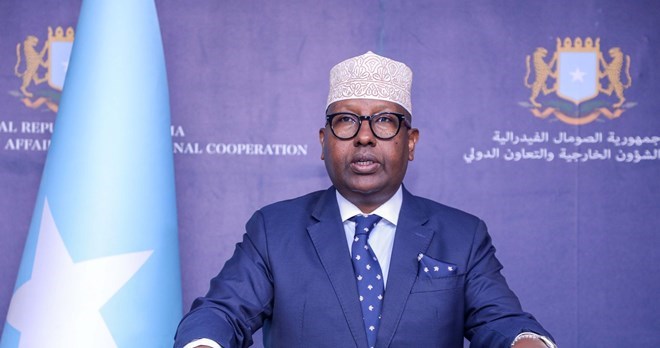
Mogadishu (HOL) – Somali Foreign Minister Ahmed Moalin Fiqi reaffirmed the federal government’s commitment to holding universal suffrage elections in 2026, including Puntland and Jubbaland.
Speaking to VOA Somali, Fiqi said the nation must move away from indirect elections. “We are ending the old practice where regional administrations dictate our choices. The people will no longer be forced into selections against their will. Elections will be held in Puntland, Jubbaland and throughout Somalia,” he said.
The minister’s remarks come as the Jubbaland and Puntland leaders and opposition politicians have opposed the shift to a one-person, one-vote system and accused the federal government of unilaterally managing the election.
Somalia last held a direct election in 1969, more than five decades ago, and has since relied on indirect voting methods.
The National Independent Electoral Commission said it is ready to break the current impasse and facilitate historic elections in which Somali citizens directly elect their leaders.
Over 20 people are missing after local clashes at the Kenya-Ethiopia border
Over 20 people are missing after local clashes at the Kenya-Ethiopia border

Source: AP, Tuesday February 25, 2025
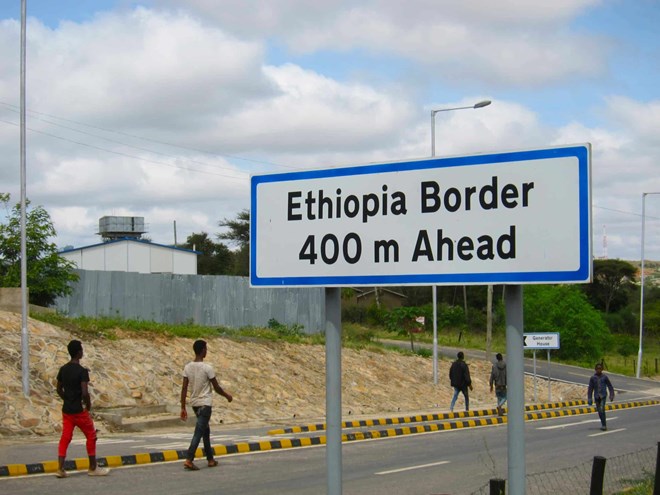
NAIROBI, Kenya — Kenya has deployed heavy security at its border with Ethiopia after an attack by armed men in what authorities describe as cross-border clashes. Twenty people are missing.
Interior Minister Kipchumba Murkomen on Monday said the government was collaborating with authorities in Ethiopia to find the missing people.
Fishermen from Ethiopia clashed with Kenyan counterparts at the Omo river on Saturday, Turkana County governor Jeremiah Lomorukai said Sunday. Local authorities said 15 boats are missing.
The Turkana community from Kenya and the Dassanech community from Ethiopia share economic activities such as pastoralism and fishing.
The area in the past has seen livestock raids in neighboring villages. Kenya had hired more police reservists to assist in the border area, but raiders often flee into Ethiopia.
Murkomen said Kenya would establish a border post where all people entering would be checked.
Sudan’s Civil War at a Crossroads
Sudan’s Civil War at a Crossroads
Source: The International Crisis Group published on 21 February 2025 an analysis titled “Battle for Khartoum Marks a Crossroads in Sudan’s Civil War.”
As the Sudan Armed Forces advance throughout Khartoum, the outcome could be the partition of Sudan with the paramilitary Rapid Support Forces maintaining control in much of Western Sudan. This might provide an opportunity for outside mediation, but the end of fighting is not yet in sight.
Is France Upping Its Game in the Horn of Africa?
Is France Upping Its Game in the Horn of Africa?
Source: The Emirates Policy Center published on 17 February 2025 an analysis titled “Macron in Djibouti and Ethiopia: Is There Anything New in France’s Approach to the Horn of Africa?“
As France struggles in West and Central Africa, it is trying to expand its influence in the Horn of Africa as witnessed by Emmanuel Macron’s recent visit to Ethiopia and Djibouti. So far, there is no clear indication of a major shift in France’s approach to the Horn, where Paris focuses on security and economic engagement.
Dismantling of USAID Begins to Take Toll on Kenya’s Economy
Dismantling of USAID Begins to Take Toll on Kenya’s Economy
Source: The Financial Times published on 23 February 2025 an article titled “Donald Trump’s Assault on Aid Sparks Chaos in East Africa’s Relief Hub” by William Wallis.
The economy of Kenya, a regional hub for American assistance to Africa, has been hit hard by the Trump administration’s dismantling of USAID. In 2023, Kenya received $830 million in US assistance, almost half of it in the healthcare sector.
South Sudan: UNMISS urges parties to uphold peace deal following escalations in Upper Nile and Western Equatoria
South Sudan: UNMISS urges parties to uphold peace deal following escalations in Upper Nile and Western Equatoria
by: Source, Horn Observer Contributor | 18 February 2025 
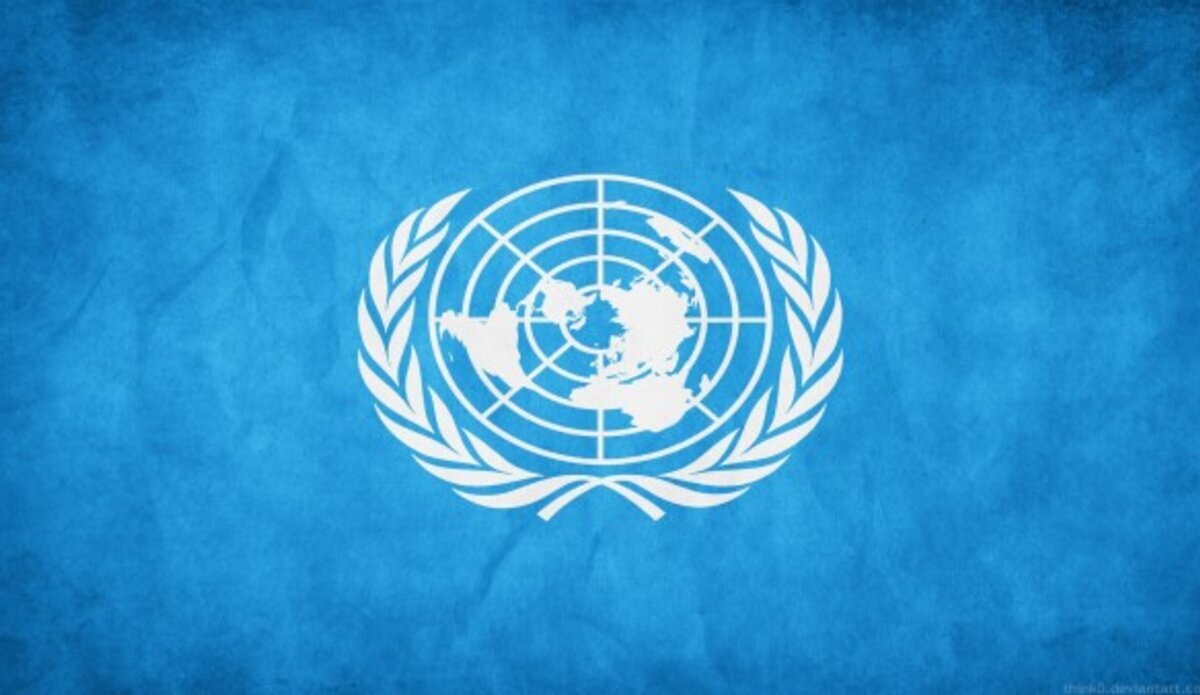

The United Nations Mission in South Sudan (UNMISS) is deeply concerned by clashes in Nassir, Upper Nile, and persistent tensions between organized forces in Western Equatoria that have led to deaths, destruction of property and civilian displacement in both states.
On 14-15 February, a series of violent exchanges took place between the South Sudan People’s Defense Forces (SSPDF) and armed youth in Nassir. These included the use of heavy weaponry which has, reportedly, resulted in deaths and injuries to civilians as well as armed personnel. A pre-planned UNMISS patrol was also impacted by the fighting, with a peacekeeper sustaining injuries during mortar shelling.
“I urge all involved to demonstrate restraint and immediately restore calm. I also strongly condemn any violence against our peacekeepers and reiterate that such actions constitute a violation of international law,” said Nicholas Haysom, Special Representative of the UN Secretary-General and Head of UNMISS.
“The situation in both locations underscores the critical importance of the full and rapid deployment of the Necessary Unified Forces, in accordance with the Revitalized Peace Agreement. Vitally, as South Sudan commences the fourth extension of its transitional period on 22 February, parties must adhere to the Agreement and urgently progress its implementation since it remains the only route towards a permanent peace,” added SRSG Haysom.
For its part, UNMISS is continuing to engage with communities and authorities in affected areas to reduce tensions.
—
Contact: UNMISS Spokesperson, Priyanka Chowdhury at chowdhury20@un.org(link sends e-mail)(link sends e-mail)(link sends e-mail) or unmiss-spokesperson@un.org
UK Appoints New Ambassador to Somalia Amid Regional Security Concerns
UK Appoints New Ambassador to Somalia Amid Regional Security Concerns
by: SOURCE: Horn Observer Contributor | 20 February 2025 
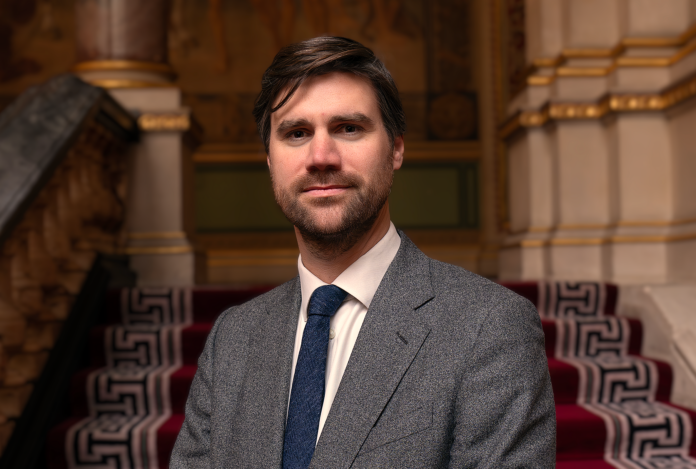

The United Kingdom has appointed Charles Nicholas King as its new ambassador to Somalia, replacing Michael Nithavrianakis MVO.
Mogadishu (Horn Observer) The United Kingdom has appointed Charles Nicholas King as its new ambassador to Somalia, replacing Michael Nithavrianakis MVO, Kaab TV repoted.
King, a veteran diplomat with the UK’s Foreign, Commonwealth & Development Office (FCDO), will assume the role in May 2025.
The appointment reflects the UK’s growing engagement in the Horn of Africa, particularly amid ongoing regional tensions and security challenges.
King, who has served in Syria, Iraq, Afghanistan, Gaza, Egypt, and Turkey, has been with the FCDO since 2004.
In addition to English, he speaks Arabic, an asset for diplomatic efforts in the region.
Following the British Embassy Mogadishu’s announcement of his appointment, King expressed his enthusiasm, stating he was “delighted to be taking on the role and looking forward to starting soon.”
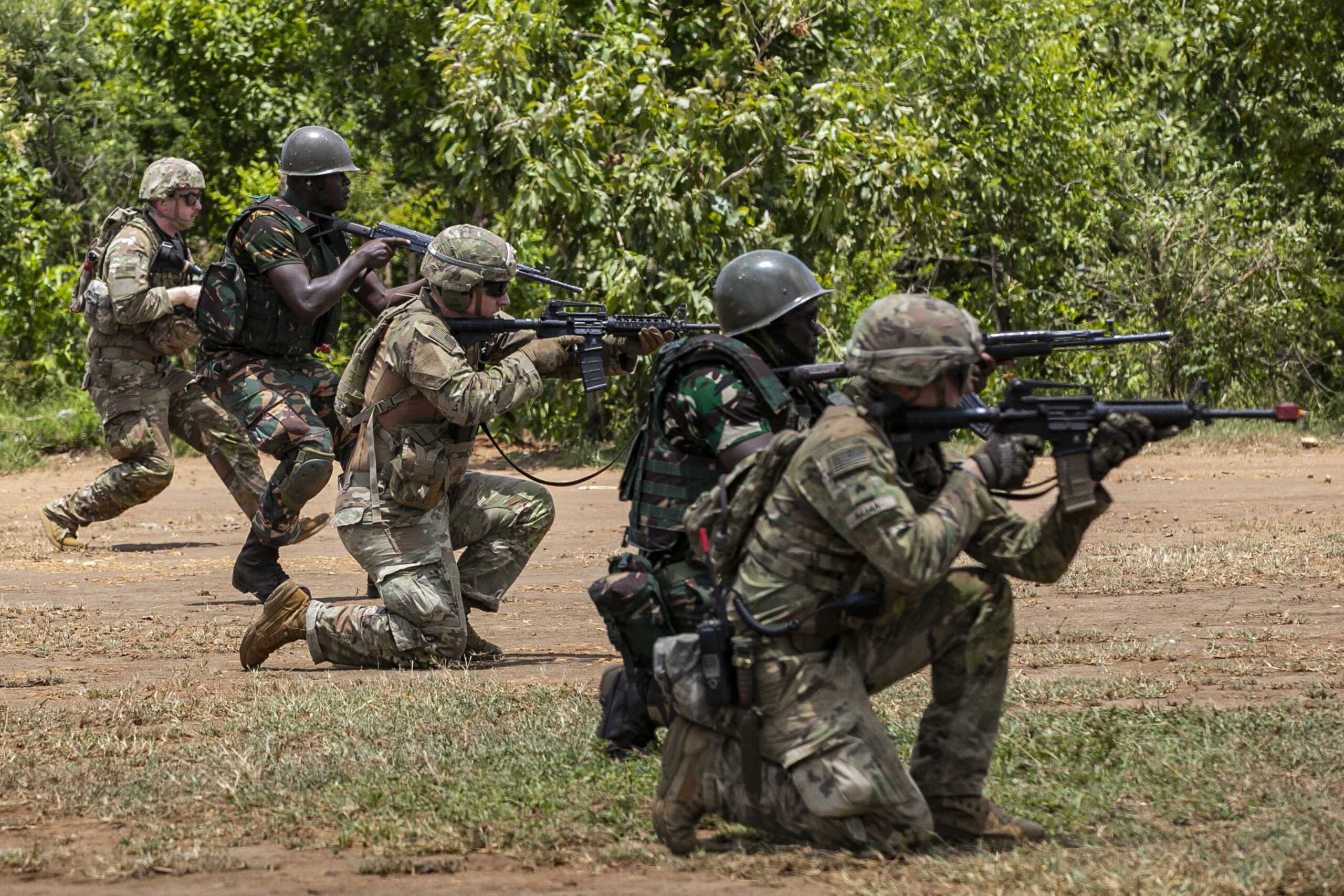
Meanwhile, the UK has reaffirmed its commitment to security partnerships across Africa. More than 22 African nations are participating in Exercise Justified Accord, a multinational military operation led by the US and supported by the UK.
Running from February 10–21, the exercise is hosted in Djibouti, Kenya, and Tanzania and includes both strategic table-top planning and live-action drills. These drills involve coordinated ground attacks, urban warfare tactics, drone operations, and air-support missions.
King’s appointment comes as the UK seeks to strengthen its influence in Africa, emphasizing long-term partnerships for peace and stability.
African Union: New chairperson faces major challenges
African Union: New chairperson faces major challenges

Cai Nebe
Source: DW, Saturday February 22, 2025
The African Union Commision has new leadership in Djibouti’s Mahmoud Ali Youssouf. But how will the AUC handle deepening continental and global crises?
Pushed to the peripheries of the world’s news agenda, the recent African Union (AU) summit in Addis Ababa still delivered a tectonic shift in the continent’s most prominent multilateral body.
Mahmoud Ali Youssouf was elected head of the AU’s executive commission to replace the outgoing Moussa Faki from Chad. Youssouf is the first person from the East Africa region to lead the AU Commission, or AUC. Djibouti’s foreign minister since 2005, there are few who can match Youssouf’s experience.
Still, Youssouf was given an outside chance to win against veteran Kenyan politician Raila Odinga in an election with the mandate that the new leader would come from East Africa,
“The competition was between a politician and a diplomat, and it was very tough. It went to the seventh round of voting,” explained DW’s Solomon Muchie, who covers the African Union in Addis Ababa.
But Youssouf won the required support of two-thirds of the region’s leaders to secure the post and represent some 1.5 billion Africans across the continent. Algeria’s ambassador to the AU, Selma Malika Haddadi beat out competition from Egypt and Morocco.
Youssouf, who speaks Arabic, English and French, now faces the unenviable task of serving an African continent that is seeing as much armed conflict as it did in the post-Cold War era of the 1990s.
“If they are united in thought, they might be able to develop a common agenda, but it’s a tall order,” says Kenyan analyst Macharia Munene, a professor of history and international relations.
AUC a prize position for Djibouti
“Djibouti is a small but very critical state in this region,” Muchie says, pointing out that the United States, China, France, Italy and Japan all have military bases in Djibouti.
“This is also the corridor for Asia, Europe and Africa trade routes,” he adds.
For AU host Ethiopia, having a Djiboutian at the helm could also be advantageous.
Asked if host Ethiopia had a dilemma in choosing between Youssouf and Odinga, Dareskedar Taye, an Ethiopian analyst at the Institute of Foreign Affairs, told DW it was good that Youssouf is from the Horn of Africa.
“If effort and desire is added in improving Ethiopia’s relationship with Djibouti from its current level, I think this can be good,” he told DW.
Taye added that although Ethiopia maintains ties with Kenya, “Djibouti is our only way-out country in terms of port access.”
Munene said it was “no surprise” that Youssouf defeated veteran Kenyan politician Raila Odinga. Aside from concerns of about working with Kenyan politicians or Odinga personally, Macharia says the positions that Kenya has taken recently are contrary to AU interests.
“The fact that Kenya is hosting the rebel side of the Sudanese civil war, of course, will make some other countries very unhappy,” he told DW, referring to a meeting held this week in Nairobi, where Sudan’s rebel group, the Rapid Support Forces (RSF), are preparing to establish a rival administration. The meeting caused Sudan’s government, controlled by the Sudanese Armed Forces, to recall their envoy to Kenya.
Severe headwinds expected
While the AU summit was ongoing, many leaders in Western democracies were dismayed at the events unfolding at the Munich Security Conference. Since the end of the Cold War, the US had been the North Star for ideals around multilateralism, democracy and rules-based diplomacy. But then a string of statements from American officials came, implying that Europe would have to take care of its own security. This, added to the Trump administration pulling out of the Paris Climate Agreement, the World Health Organization and skipping the G20 summit in South Africa, means Western democracies will likely turn inward.
“It is expected that the aid and support provided to the African Union from Western countries will decrease significantly,” Dareskedar Taye told DW. For context, the European Union provides more than half of the AU’s annual budget, and the AU relies on external funding for two-thirds of its budget. In 2022, the EU’s European Peace Facility allocated €600 million to the AU for peace missions.
Often criticized as an organization for African leaders rather than African people, the AU battles for legitimacy despite being the only body of its stature in Africa.
“The AU requires institutional reform, because the African Union is not doing much for Africans. For example, the financial capacity is weak. Now, new leaders have come forward; maybe they can improve it,” Dareskedar Taye said.
Munene told DW the AU’s ineffectiveness lies not just in weak funding: “It first needs to resolve internal divisions, some of them ideological, others simply personal disputes.”
Without solving these problems first, Macharia says it is hard to see the AU effectively addressing “big problems right now, like Sudan and the DR Congo.”
Widening conflicts and reparations
There are serious armed conflicts across Africa that show no signs of stopping. There is a two-year civil war in Sudan between the Sudanese Army and the RSF, and continued Islamist insurgencies in the Sahel region. Fighting in the eastern Democratic Republic of Congo and gains made by the Rwanda-backed M23 threaten to spark a regional war comparable in scale to fighting last seen in the late 1990s. And this is before problems like economic instability and the increasingly devastating effects of climate change get attention.
The AU also made 2025 a year of focus for “Justice for Africans and People of African Descent Through Reparations.”
“The issue of reparations has been around for a long time and it’s a good PR issue. The implementation of it, of course, is a big problem,” Munene told DW.
He sees challenges in getting European countries, which have seen a surge in far-right popularity, agreeing to any form of reparation. The United States, where many of the African diaspora, whose ancestors were enslaved by European and American businessmen, live, has also been “cutting, cutting, cutting” aid, Munene says.
The gutting of USAID has already left a severe funding gap in many programs across Africa. And while some observers have questioned the timing of the AU’s call for reparations, others have said now is the right time for European countries looking for allies in the wake of the Trump administration’s America First foreign policy to strike deals with former African colonies. It is believed forms of reparations or compensation might make this process easier.
Edited by: Sarah Hucal
As Sudan’s army routs RSF from Khartoum, Sudanese reactions are mixed
As Sudan’s army routs RSF from Khartoum, Sudanese reactions are mixed
Sudan’s civilians are bearing the brunt of the battle for Khartoum between the army and RSF.

Source: By Mat Nashed
Published On 19 Feb 202519 Feb 2025
Many Sudanese civilians are welcoming the army as a liberator as it advances across the capital, Khartoum, to topple the paramilitary Rapid Support Forces (RSF).
But activists on the ground say both sides are increasingly resorting to brutal tactics, which are exacerbating the humanitarian crisis.
Horn of Africa’s Pride: Mohamed Ali Yousef Leads the African Union
Horn of Africa’s Pride: Mohamed Ali Yousef Leads the African Union
In a historic moment for the Horn of Africa and the broader East African region, Mohamed Ali Yousef has been elected as the Chairperson of the African Union (AU) for 2025.
Source: ByIsmail D. Osman
February 17, 2025

Saturday February 15, 2025, In a historic moment for the Horn of Africa and the broader East African region, Mohamed Ali Yousef has been elected as the Chairperson of the African Union (AU) for 2025. His victory is not just about politics; it shows that this region is becoming more important in shaping Africa’s future.
Mohamed Ali Yousef is a well-known diplomat and leader. He has played a big role in regional affairs for many years. His election proves that the Horn of Africa is a key part of the continent. This region—made up of Somalia, Ethiopia, Eritrea, Djibouti, and Sudan—has always been at the center of Africa’s security and economy. His leadership comes at a time when Africa faces many challenges, and people hope he will help find solutions.
As the new Chairperson of the AU, Yousef will have many responsibilities. Africa is dealing with many issues, including security problems, economic struggles, climate change, and political instability. The Horn of Africa itself has had many conflicts and outside interference. Now, with Yousef in charge, there is hope for more unity and a stronger focus on solving these problems.
Yousef has a strong background in diplomacy. He understands how African nations can work together to create peace and improve their economies. His experience will help him bring countries together, improve trade between African nations, and make Africa’s voice stronger in the world. One of his key goals will be to push forward the African Continental Free Trade Area (AfCFTA). If successful, this trade agreement will help African countries do business with each other more easily, create jobs, and boost economic growth.
Another major challenge Yousef will face is conflict resolution. The Horn of Africa has experienced wars, political struggles, and border disputes. Many people believe that his diplomatic skills will help resolve some of these issues. He could encourage dialogue between rival groups, support peace agreements, and push for stronger regional cooperation.
His election also shows that East Africa is becoming more powerful in African politics. In the past, leadership in the AU has rotated among different parts of Africa, but East Africa’s role has been growing. Countries like Kenya and Ethiopia have become major players in African affairs. Now, with Yousef leading the AU, East Africa is showing that it has strong leaders who can guide the entire continent.
This victory also highlights the importance of leaders who understand Africa’s different regions. The Horn of Africa has seen both conflict and progress. People here know how hard it is to build peace and develop strong economies. A leader like Yousef, who has worked in diplomacy for years, knows what it takes to bring African nations together.
Now that he has won, expectations are high. Many Africans hope he will turn his leadership into real action. His job will not be easy. He must work to bring peace, help economies grow, and make Africa a stronger player in global affairs.
As 2025 begins, all eyes will be on Yousef. People will watch to see if he can handle the challenges ahead. But based on his past work, many believe he is the right person for the job. The Horn of Africa has produced a leader who represents resilience and vision. If he succeeds, his time as AU Chairperson could mark the beginning of a stronger and more united Africa.
Swedish court jails four for IS ties in Somalia, dismisses terror plot charges
Swedish court jails four for IS ties in Somalia, dismisses terror plot charges

Source: Hiiraan Online, Tuesday February 18, 2025

The exterior of Nacka District Court (Nacka Tingsrätt) in Sweden, where four Swedish nationals were sentenced for their involvement with the Islamic State (IS) in Somalia, while three were acquitted of terrorism-related charges.
STOCKHOLM, Sweden (HOL) — A Swedish court on Monday sentenced four men to prison for participating in the Islamic State (IS) network, including recruitment, weapons training, and propaganda activities, while acquitting three of them of planning an attack inside Sweden.
The Nacka District Court handed down sentences ranging between three and six-and-a-half years to the four Swedish nationals, citing their direct involvement in IS operations in Somalia. However, it dismissed charges that three of them had been plotting a terrorist attack inside Sweden, ruling that the evidence did not establish a concrete plan for an imminent strike.
Convictions and SentencesThe court found that between 2023 and 2024, the men actively supported IS by recruiting new members, conducting arms training, and spreading propaganda for the militant group. The convicted individuals are:
- Omar Yasser Ahmed Atia, 21, sentenced to six-and-a-half years.
- Daniel Elias Johansson, 25, sentenced to six years.
- Rasmus Erik Johansson, 23, sentenced to five-and-a-half years.
- Elyas Mohamed Hakamali, 63, sentenced to three years.
Three of them had also been charged with preparing a terrorist crime in Sweden, but the court found insufficient evidence to prove they had a specific target or operational plan.
“The district court did not consider that there was a sufficiently clear plan for an intended terrorist offence,” the ruling stated.
The Swedish Prosecution Authority, which had accused the suspects of intending to kill or injure civilians in an IS-backed attack, expressed disappointment with the acquittals but said it respected the ruling.
One of the convicted men, Elyas Mohamed Hakamali, 63, a longtime imam in Tyresö, south of Stockholm, was a central figure in the case. He had been the leader of a local Islamic cultural association and its basement mosque for over two decades before his arrest.
Authorities detained him on April 17, 2024, during a pre-dawn raid, marking a significant moment in the Swedish Security Service’s (Säpo) counterterrorism efforts. Prosecutors accused him of actively recruiting members, including young converts, for IS activities in Somalia. His mosque, which had received nearly half a million kroner in state funding since 2016, is now under investigation for potential misuse of funds related to radicalization efforts.
Säpo believes that Hakamali played a key role in radicalizing and recruiting the younger men involved in the case. According to prosecutors, he taught extremist ideology to children and youth at the mosque, a claim that has deeply unsettled Sweden’s religious communities.
The investigation also revealed that two of the convicted individuals, brothers aged 23 and 25, had allegedly received direct instructions from IS in Somalia to “kill as many infidels as possible, with Jewish targets as the main targets.” Prosecutors say the brothers had discussed seeking minors under 18 who were “ready to die as martyrs” and could “kill many” in attacks.
Wiretapped conversations captured them speaking about potential targets, including government buildings, police, intelligence agencies, and synagogues in Sweden. Authorities say the group had links to an organized criminal gang in Tyresö, which supplied them with a firearm and an electric stun gun.
The defence lawyers for Atia and Johansson indicated that their clients would appeal the verdicts, while the attorneys for the other two did not immediately comment.
Swedish authorities arrested three of the suspects on March 7, 2024, in coordinated raids across Stockholm, including Tyresö. Hakamali was arrested separately on April 17, 2024, following a second phase of investigations.
Swedish Security Police (Säpo) had described the arrests as a preventative operation to avert a potential attack, but details on the suspected plot remained classified.
Sudan slams Kenya for hosting RSF-aligned political event
Sudan slams Kenya for hosting RSF-aligned political event

Source: Sudan Tribune, Wednesday February 19, 2025
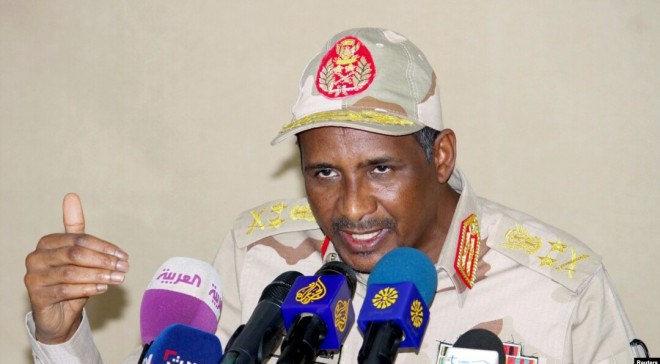
Sudan’s foreign ministry on Tuesday expressed regret over Kenya’s decision to host an event for a political coalition aligned with the paramilitary Rapid Support Forces (RSF), the group battling the Sudanese army for control of the country.
The event, held in Nairobi on Tuesday, was a preliminary step towards forming a new political alliance comprising political forces and armed groups supporting the RSF. A political charter is expected to be signed in three days, followed by constitutional arrangements and the formation of a government in RSF-controlled areas.
The foreign ministry said in a statement that the event contradicted Kenya’s commitments at the highest level not to allow hostile activities against Sudan on its territory and constituted a declaration of hostility against the Sudanese people.
It accused Kenya of encouraging the division of African countries, violating their sovereignty, and interfering in their affairs, contravening the UN Charter, the African Union Constitutive Act, and international norms. The ministry noted that the event’s stated goal is to establish a parallel government in a part of Sudanese territory.
Sudanese Foreign Minister Ali Youssif said on January 26 that Kenya’s position on Sudan had changed. Following a meeting with Kenyan President William Ruto in Nairobi, Youssif said Ruto pledged not to recognize any government the RSF intends to announce in areas under its control.
The foreign ministry expressed its regret that the Kenyan government had reneged on its obligations under international law, the UN Charter, and the Genocide Convention by allowing the gathering, which involved the RSF, which it holds responsible for ongoing genocide.
“Hosting RSF leaders and allowing them to conduct open political and propaganda activities at a time when they are committing genocide and massacres against civilians on ethnic grounds is an encouragement and participation in the continuation of these atrocities,” the ministry said.
It stressed that the event in Nairobi would have no impact on the ground, citing the army’s determination, joint forces from armed movements, and supporting forces to liberate every inch of territory controlled by the RSF.
The ministry called on the international community to condemn the Kenyan government’s actions, adding that it would take steps to rectify the situation.
US Suspends Funding for Counterterrorism in Africa and Middle East
US Suspends Funding for Counterterrorism in Africa and Middle East
Source: The Washington Post published on 16 February 2025 an article titled “Trump’s Global Funding Freeze Leaves Anti-terror Programs in Limbo” by Katharine Houreld, Rachel Carson, Susannah George, and Mustafa Salim.
The Trump administration’s suspension of funding for the Anti-Terrorism Assistance program is leaving ongoing training programs in countries like Somalia in limbo. This provides an opportunity for terrorist groups such as al-Shabaab to step up their efforts to topple legitimate governments.
Somali Ports Minister, Turkish Ambassador discuss port development cooperation
Somali Ports Minister, Turkish Ambassador discuss port development cooperation

Source: Hiiraan Online, Wednesday February 19, 2025
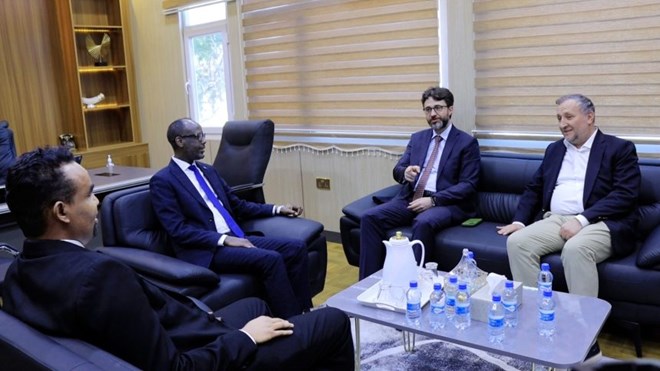
Mogadishu (HOL) – Somali Minister of Ports and Maritime Transport Mohamud Adan Gesod met with Turkish Ambassador to Somalia Alper Aktaş in Mogadishu on Tuesday to discuss the reconstruction and development of Somali ports.
The talks focused on revitalizing ports affected by years of conflict and instability. Ambassador Aktaş reiterated Turkey’s commitment to supporting Somalia’s port development efforts, leveraging Turkish expertise in port management and logistics. “During the meeting, both sides agreed to enhance cooperation between the Turkish and Somali port ministries, particularly in modernizing port infrastructure, upgrading equipment, training personnel, and providing technical support,” the Somali Ministry of Ports and Maritime Transport said in a statement.
Meanwhile, Turkish President Recep Tayyip Erdoğan is expected to visit Somalia in the coming days as part of efforts to mediate the diplomatic dispute between Somalia and Ethiopia following the controversial Memorandum of Understanding (MoU) between Somaliland and Ethiopian Prime Minister Abiy Ahmed.
Community Mourns Somali Humanitarian Activist Assassinated in Mogadishu for Opposing Evictions
Community Mourns Somali Humanitarian Activist Assassinated in Mogadishu for Opposing Evictions
Source: by: David Joseph | 15 February 2025 22:
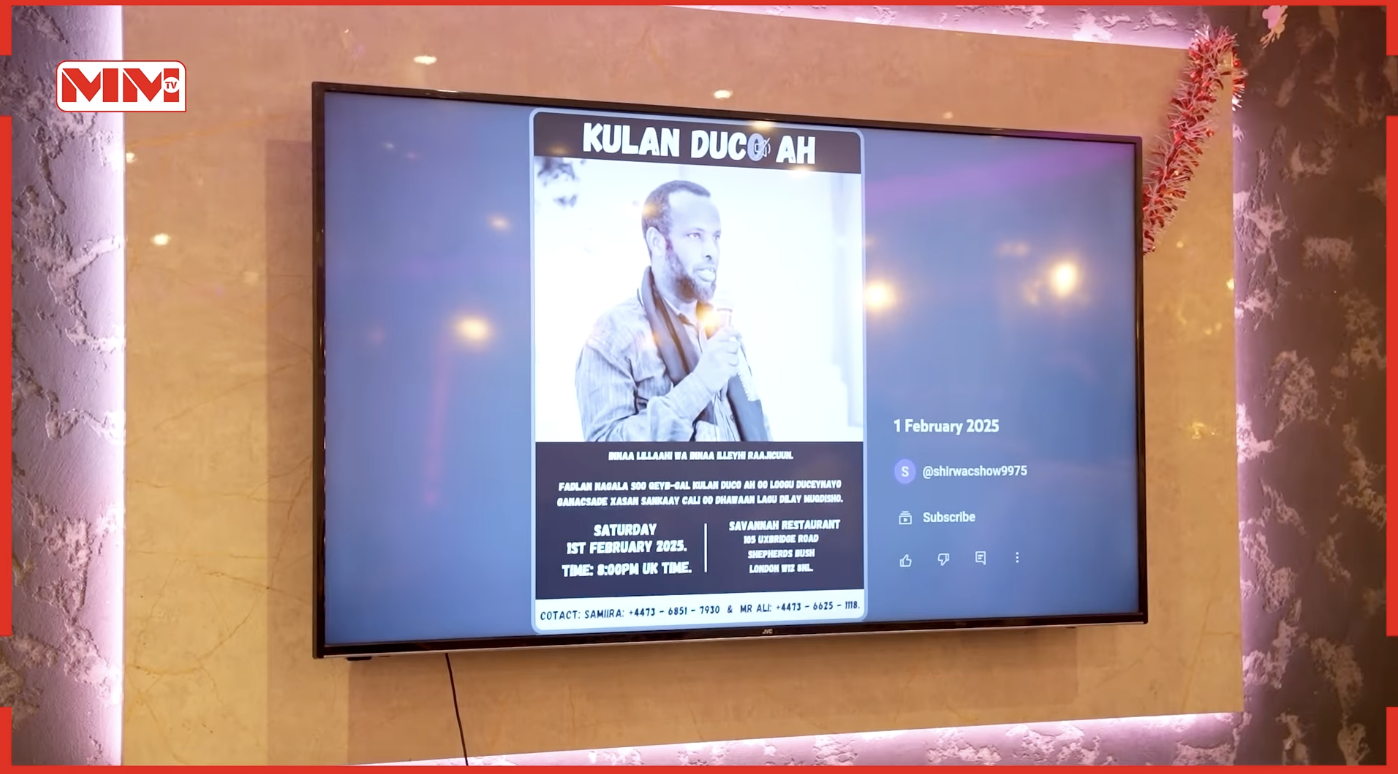

Hassan Sankay Ali, who had a family in London, United Kingdom, was assassinated by armed men in Mogadishu’s Darusalam neighborhood on January 12, 2025.
NAIROBI, Kenya (HORN OBSERVER) – A Somali humanitarian activist and businessman was shot dead in Mogadishu, in what his family describes as a well-planned assassination potentially linked to business interests in the city, Horn Observer can reveal.
Hassan Sankay Ali, who had a family in London, United Kingdom, was assassinated by armed men in Mogadishu’s Darusalam neighborhood on January 12, 2025.
He was leading an advocacy campaign against the eviction of vulnerable communities in the north of Mogadishu, according to statements from both community members in Mogadishu and London.
Samira Hassan Sankay Ali, one of the victim’s daughters who now resides in London, told MM Somali TV that her father was “assassinated in broad daylight while visiting the Darusalam neighborhood.”
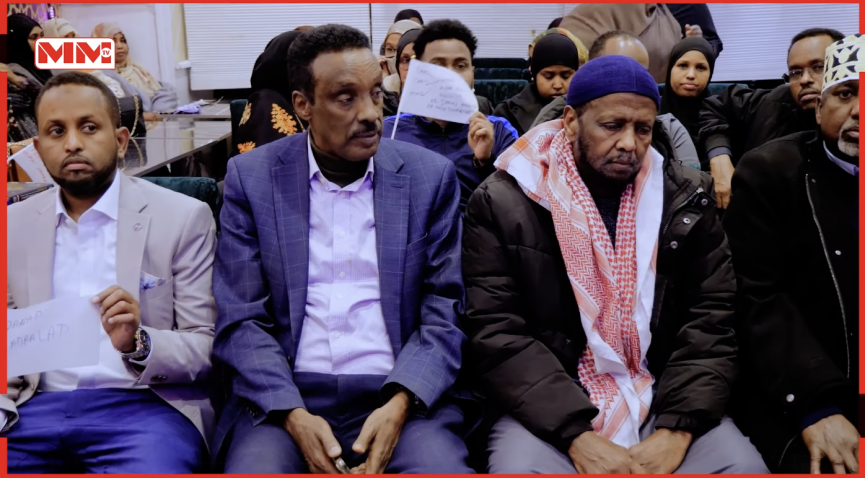
PHOTO: Last week, the Somali community in London gathered in the city center restaurant to mourn alongside Hassan Sankay Ali’s family.
She added, “The assassins fled the scene after shooting him on the head.”
Samira and her family, including her siblings, remain devastated and fearful, as their father’s body is still being held at a hospital morgue in Mogadishu.
“We cannot travel to Mogadishu due to safety concerns, and we are in constant pain knowing that his body is still in the fridge,” she said.
“My father’s death was well planned; he did not die naturally—he was executed. People had planned for it,” she said, her voice trembling as she wiped away tears.
She added, “Today, we are orphaned girls, and our father is gone. We are in pain, and we demand justice.”
A Somali police source told Horn Observer that the case is still under investigation and that suspects may be identified soon.
Who Could Have Targeted Hassan Sankay Ali?
Shortly before his assassination, Hassan Sankay Ali had joined a local community movement in Mogadishu to resist illegal land grabbers attempting to seize private land in the Habaay, Maaxaay, and Bashaqle areas, north of Mogadishu.
The disputed land had been earmarked for the construction of a port, an airport, and private villas—an alleged multi-million-dollar project involving corrupt Somali government officials and Premier Bank Limited, a local bank partly owned by President Hassan Sheikh Mohamud and other government officials.
The controversial project was initially set to cover 16 square kilometers but was later expanded to 30 square kilometers. It includes private villas, luxury hotels, and a large airport, despite strong opposition and protests from the indigenous landowners.
Shuriye Mohamed, chair of Movement Against Oppression (Dulmi Diid), an Anti-Oppression movement, condemned the illegal land seizures and called for an urgent investigation into Hassan Sankay Ali’s assassination.
Abdirahman Moalim, a prominent British-Somali community advocate and former politician, also condemned the killing, stating, “We demand an urgent investigation and for the perpetrators to be brought to justice.”
Last week, the Somali community in London gathered in the city center restaurant to mourn alongside Hassan Sankay Ali’s family.
MM TV journalist Abdifatah Ali Shirwa, who attended the event, reported that community members urged the Somali government to take immediate action, arrest the perpetrators, and ensure justice is served.
However, concerns have been raised over the increasing number of assassinations targeting diaspora members who have recently returned to Mogadishu. Many believe these killings are linked to political and business rivalries, fueling fears among returning Somalis.
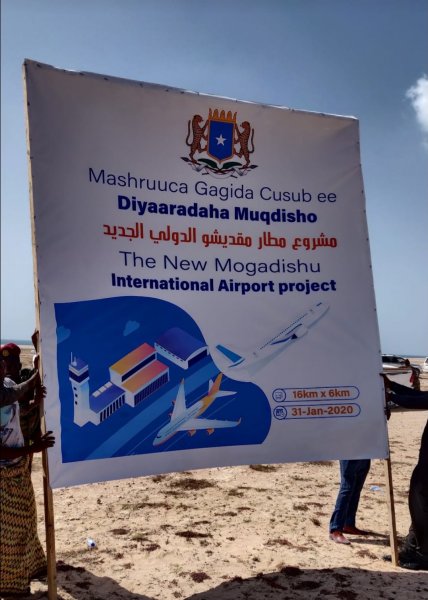
PHOTO: The controversial project was initially set to cover 16 square kilometers but was later expanded to 30 square kilometers.
A journalist contributed reporting from Mogadishu
China Builds Space Alliances in Africa
China Builds Space Alliances in Africa
Source: Reuters published on 11 February 2025 a special report titled “China Builds Space Alliances in Africa as Trump Cuts Foreign Aid” by Joe Roulette, Eduardo Baptista, Sara El Safty, and Joe Brock.
China has forged nearly two dozen pacts with African countries in its bid to surpass the US in space investments in satellites and infrastructure. This is winning friends and giving China more eyes on the skies as the US slashes foreign aid for developing countries.
The space equipment that Beijing is placing in developing countries may help China create a global surveillance network. China has democratized space to enhance its authoritarian capabilities, and it is doing so effectively. As China advances its relationships in Africa with technology incentives, the US is pulling back
The Islamic State Regroups in Somalia
The Islamic State Regroups in Somalia
Source: The Washington Post posted on 11 February 2025 (front page of the 12 February paper edition) an article titled “The Islamic State Has Regrouped in Somalia — And It Has Global Ambitions” by Katharine Houreld.
The Islamic State’s Somali branch has become its new operational and financial hub with estimates of as many as 1,000 militants under its command. In 2015, the Islamic State broke from the better-known Al-Shabaab terrorist group in Somalia and its aspirations are larger. Islamic State militants come from a variety of countries and the Somali branch provides funding for like-minded groups throughout the region. Its base of operations is the Puntland region of Somalia.
Sudan Armed Forces Advance in Khartoum; Russia May Be Closer to Base in Port Sudan
Sudan Armed Forces Advance in Khartoum; Russia May Be Closer to Base in Port Sudan
Source: The American Enterprise Institute’s Critical Threats Africa File published on 13 February an article titled “SAF Announces Government Plan and Russian Naval Base.”
The Sudan Armed Forces (SAF) has recaptured nearly all of the capital city of Khartoum from the paramilitary Rapid Support Forces (RSF). SAF leader Abdel Fattah al-Burhan is preparing to form a technocratic government after it completes a takeover of the capital. The RSF still controls much of western Sudan.
The door may finally be open to Russia to establish a long-discussed naval base at Port Sudan, the SAF’s current capital, following US sanctions on the SAF and its leader.
Djibouti’s Foreign Minister Mahmoud Youssouf beats Raila to win AUC chair race
Djibouti’s Foreign Minister Mahmoud Youssouf beats Raila to win AUC chair race

Source: Hiiraan Online, Saturday February 15, 2025
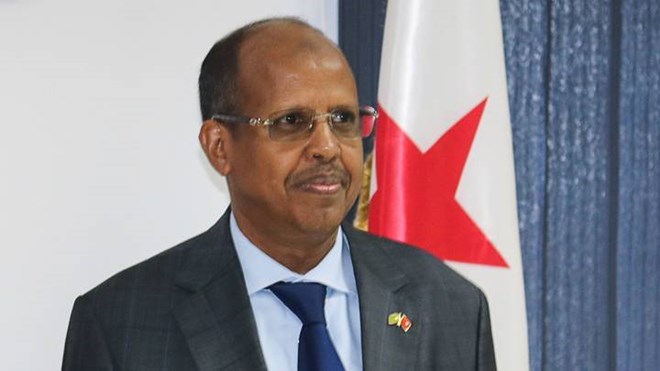
Mogadishu (HOL) – Djibouti’s Foreign Minister Mohamoud Ali Youssouf has been elected as the African Union Commission (AUC) chairperson after securing the required 33 votes in a highly contested election on Saturday in Addis Ababa.
Youssouf defeated Kenya’s Raila Odinga and Madagascar’s Richard Randiamandrato. The final results were announced after sixth rounds of secret balloting at Nelson Mandela Hall, during which intense diplomatic maneuvering shaped the outcome.
The Djiboutian diplomat, who has served as his country’s Foreign Affairs Minister for over two decades, will succeed Moussa Faki Mahamat, Chad’s former prime minister, as the AUC chairperson
Sudan scene of world’s worst humanitarian crisis: African Union
Sudan scene of world’s worst humanitarian crisis: African Union
Source: Aljazeera, Conflict hampering delivery of aid to a population suffering attacks and threat of famine.

Published On 11 Feb 202511 Feb 2025
The civil war in Sudan has created the “worst humanitarian crisis in the world”, the African Union has warned.
The conflict between the Sudanese military government and paramilitary Rapid Support Forces (RSF) is hampering the delivery of aid to a population suffering attacks and the threat of famine, officials said on Tuesday at a panel on the crisis.
